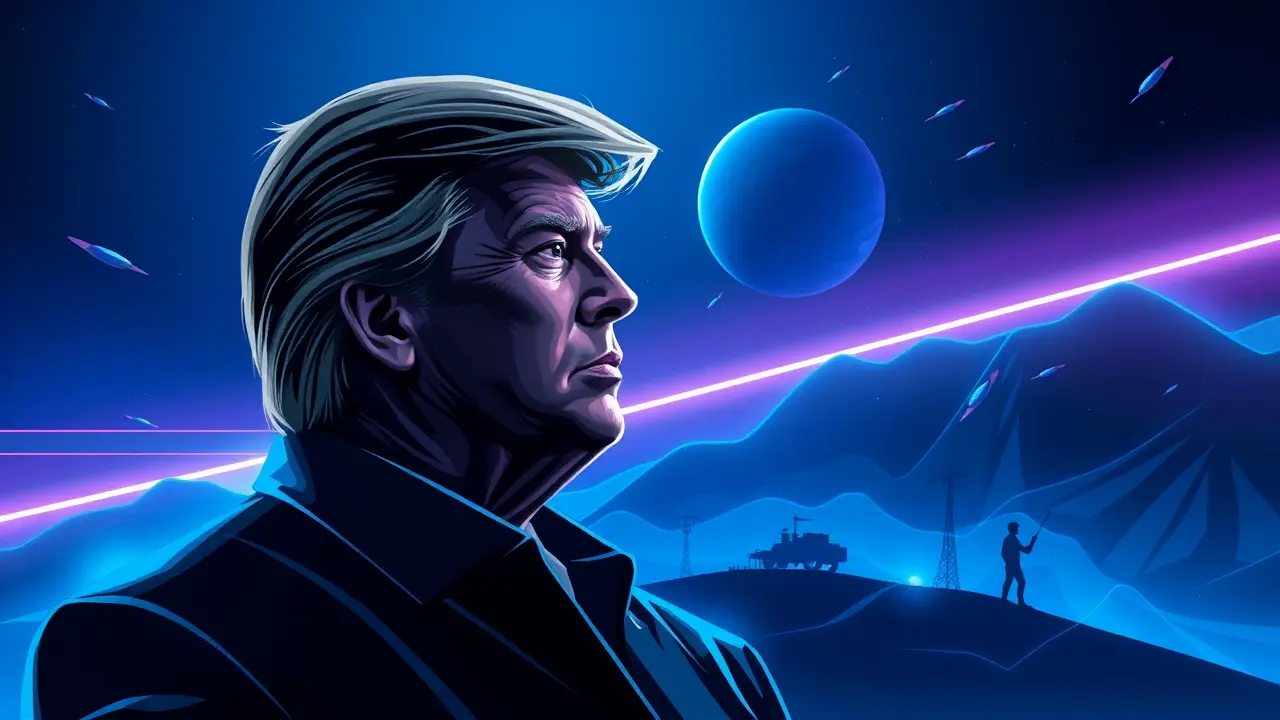Trump Claims CIA Covert Operations in Venezuela
In a move that feels ripped straight from a political thriller's script, former President Donald Trump has once again thrust Venezuela into the geopolitical spotlight, claiming the administration is 'looking at land' for potential further strikes while artfully dodging the million-dollar question about CIA authority to act against President Nicolás Maduro. This isn't just off-the-cuff rhetoric; it's a calculated volley in a high-stakes ideological war where every word is a potential predicate for action, a signal to allies and adversaries alike.Let's break down the playbook here. The 'looking at land' comment is classic strategic ambiguity—it's vague enough to maintain deniability but specific enough to keep Caracas and its backers in Moscow and Beijing on their toes, a psychological operation designed to test resolve and sow internal discord.Remember the playbook from the 2019 push to recognize Juan Guaidó as interim president? This feels like a sequel, but with the stakes ratcheted up amid global energy crises and shifting alliances. The real kicker, the part that should have every intelligence analyst and policy wonk running scenarios, is the implied question of CIA covert ops.We're not talking about standard diplomatic pressure or even sanctions; we're venturing into the murky territory of paramilitary support, cyber campaigns, and economic destabilization—the kind of shadow warfare the agency has honed from Guatemala in 1954 to more recent theaters. Would the current administration greenlight such a move? The legal and political minefield is enormous.The Intelligence Authorization Act and executive orders provide a framework, but the interpretation is often elastic, stretched by perceived national security imperatives. A covert action against a sitting head of state, even one as controversial as Maduro, would require a finding and likely congressional notification, a process fraught with leaks and partisan friction.Imagine the hearings, the media frenzy, the international outcry. Yet, for a political operative like Trump, the very suggestion serves a purpose: it energizes a base that loves a strong, unilateral America, it puts the Biden administration in a bind—forced to either reject the premise and look weak or engage and risk escalation—and it keeps the Venezuela file active as a wedge issue.Look at the regional chessboard. Brazil's Lula is back, advocating dialogue, while Colombia's Gustavo Petro represents a leftward shift; a overt military intervention would shatter that fragile consensus, potentially alienating crucial partners.But a covert angle? That offers plausible deniability, a way to apply maximum pressure without the optics of another invasion. The risks, however, are profound.Maduro, backed by Russian military contractors and Iranian expertise, is no easy target. A failed covert operation could embolden him, expose U.S. capabilities, and trigger a refugee crisis dwarfing previous waves.Furthermore, it sets a precedent that could easily boomerang, justifying similar actions by adversaries against U. S.-aligned governments. This is political strategy as a high-risk, high-reward game, where the announcement itself is a weapon, and the true battle is fought in the headlines and on cable news before a single operative sets foot on the ground. The question isn't just what the CIA can do; it's what the very suggestion of it does to the balance of power in the hemisphere.
Latest News
The charts are whispering what the true believers have felt in their bones for weeks—Dogecoin is carving out a bottom.
17 hours ago5 comments
The Institute for Fiscal Studies has thrown a stark warning onto Rachel Reeves's desk, urging the Chancellor to confront a potential £22 billion shortfall in
17 hours ago3 comments
Alright, let's break down this absolute heater of a performance from the Chicago Blackhawks, because if you missed this one, you missed a party.
17 hours ago5 comments
The ice was hot last night in the NHL, folks, serving up a slate of games that felt less like a regular season Tuesday and more like a playoff preview with a
18 hours ago3 comments
The XRP chart is painting a tantalizing picture for those with the stomach to withstand the relentless pressure from crypto's leviathans.
18 hours ago4 comments
It’s in the small shifts, the quiet recalibrations of a Thursday morning, where the most meaningful change often takes root.
18 hours ago4 comments
In a move that sent ripples of quiet confidence through the crypto ecosystem, blockchain intelligence firms tracked a monumental treasury allocation from
18 hours ago4 comments
In a move that would have drawn a nod of approval from historical figures like Churchill, who understood the delicate balance of power within democratic
18 hours ago2 comments
JA
Jamie Wilson123k7 hours ago
looking at land for what, a new resort? this feels like a movie sequel nobody asked for
0
RY
Ryan Carter123k7 hours ago
sounds ambitious but i'm curious how this would actually work without causing a massive backlash tbh, feels like we've seen this movie before
0
JA
Jamie Larson123k12 hours ago
wait what is happening now smh this feels like a movie plot tbh
0
RY
Ryan Carter123k14 hours ago
tbh this feels like the same old script every few years, not sure anything actually changes
0
